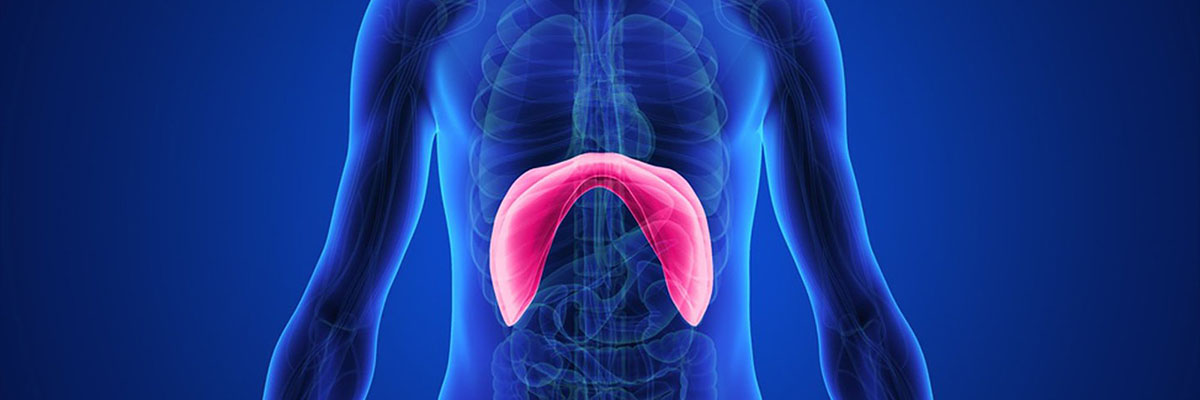Summary
Hiccups, or “sinok” in Filipino, occur when the diaphragm—a muscle located below the lungs—involuntarily contracts or spasms. Each contraction of the diaphragm is followed by a sudden closure of the vocal cords, producing the characteristic “hic” sound with each hiccup. Hiccups can last anywhere from a few minutes to several hours, depending on the underlying cause.
While hiccups are generally harmless and resolve on their own, persistent or prolonged hiccups can interfere with eating, sleeping, speaking, and even the healing process after surgery. Long-lasting hiccups may impact appetite, disturb restful sleep, and disrupt daily activities, especially if they become frequent or intense.
In most cases, hiccups do not signal a serious health issue. However, if they persist for more than 48 hours, medical attention may be needed to investigate potential underlying causes and find effective treatment options.
Table of Contents
How to Stop Hiccups

Hiccups often go away on their own without the need for medical treatment. However, if you’re looking for quick relief, the following methods are believed to help stop hiccups:
- Hold your breath for 10 seconds. This may help reset the diaphragm and calm its spasms.
- Gargle with ice water. The cold temperature can stimulate the vagus nerve, potentially stopping the hiccups.
- Drink a glass of cold water. Drinking slowly or through a straw may help relax the diaphragm.
- Breathe into a paper bag. Breathing into a paper bag for a few moments increases carbon dioxide levels, which may interrupt the hiccup reflex.
- Swallow a teaspoon of honey or sugar. The sweet taste and texture can stimulate the vagus nerve and may help reset the diaphragm.
If hiccups last for more than two days or interfere with daily activities, it is recommended to consult a doctor. Persistent or prolonged hiccups may require medical treatment, and doctors may prescribe medications such as:
- Chlorpromazine. Often used as a treatment for prolonged hiccups, this medication helps calm the nervous system.
- Metoclopramide. Typically used for digestive issues, this medication can help reduce the diaphragm’s spasms.
- Baclofen. A muscle relaxant, Baclofen may help ease muscle spasms and relieve persistent hiccups.
These remedies and treatments can be effective in managing and alleviating hiccups, but medical intervention is essential if hiccups are frequent or chronic. Persistent hiccups may indicate an underlying issue that requires further evaluation.
Symptoms of Hiccups
Hiccups are easy to recognize due to their distinct, involuntary sound and sensation. However, in some cases, prolonged hiccups may be accompanied by other symptoms. Here are the main symptoms associated with hiccups:
- Involuntary “hic” sound. Each hiccup creates a noticeable “hic” sound caused by the sudden closure of the vocal cords following a diaphragm spasm.
- Involuntary diaphragm spasms. Hiccups are characterized by rhythmic, involuntary contractions of the diaphragm, the muscle that aids in breathing.
- Chest or throat tightness. Some people experience a slight feeling of tightness or pressure in the chest or throat with each hiccup.
- Discomfort with prolonged hiccups. In cases where hiccups last for an extended period, individuals may experience discomfort, which can interfere with eating, speaking, or sleeping.
Hiccups are generally harmless, but if they persist for longer than 48 hours, it may be a sign of an underlying issue, and seeking medical attention is recommended.
Types of Hiccups
Hiccups are generally classified based on their duration and potential underlying causes. Understanding these types can help in identifying when they might be a minor nuisance or a sign of an underlying condition. Here are the main types of hiccups:
- Acute (temporary) hiccups. These are the most common type of hiccups, lasting only a few minutes to a few hours. They are usually triggered by minor factors like eating too quickly, drinking carbonated beverages, or experiencing sudden emotional changes. Acute hiccups often resolve on their own and don’t require medical intervention.
- Persistent hiccups. Persistent hiccups last for more than 48 hours but less than a month. They may be caused by underlying issues such as gastrointestinal disorders, respiratory conditions, or even some medications. Persistent hiccups are more disruptive and may require medical evaluation to identify and treat the root cause.
- Intractable (chronic) hiccups. Intractable hiccups last for over a month and are very rare. These prolonged hiccups are often linked to more serious underlying health conditions, such as nerve damage, brain disorders, or metabolic issues. Chronic hiccups can significantly impact a person’s quality of life and require thorough medical investigation and intervention.
Most cases of hiccups are acute and resolve on their own, but persistent or intractable hiccups may indicate a more serious health concern. Seeking medical advice for hiccups lasting more than 48 hours can help identify potential underlying causes and provide relief.
Diagnostic Procedures for Hiccups
While most hiccups are short-lived and don’t require medical evaluation, persistent or intractable hiccups lasting longer than 48 hours may indicate an underlying health issue. In such cases, doctors may use various diagnostic procedures to determine the cause. Here are the primary diagnostic methods for evaluating persistent hiccups:
- Medical history and physical examination. The doctor will start by reviewing the patient’s medical history, including any recent changes in diet, lifestyle, or medications, as well as any underlying health conditions. A physical examination can help identify any physical abnormalities, such as ear or throat issues, that may be triggering the hiccups.
- Neurological evaluation. Because the brainstem controls the hiccup reflex, a neurological exam may be conducted to check for signs of neurological conditions like stroke, multiple sclerosis, or brain injury that could contribute to persistent hiccups.
- Blood tests. Blood tests may be ordered to identify metabolic imbalances or conditions such as diabetes, kidney disease, or infections, all of which could affect nerve function and potentially cause chronic hiccups.
- Imaging studies (X-ray, CT scan, or MRI). If there is suspicion of structural issues in the chest, abdomen, or brain, imaging tests like X-rays, CT scans, or MRIs may be used to detect any abnormalities, such as tumors, cysts, or inflammation, that may be pressing on nerves linked to the diaphragm.
- Endoscopy. If gastrointestinal causes are suspected, an endoscopy may be performed to examine the esophagus, stomach, and upper intestine for signs of gastroesophageal reflux disease (GERD), ulcers, or other irritations that could be contributing to hiccups.
- Electrocardiogram (ECG). If there are concerns about the heart, an ECG can assess heart function and detect any irregularities that might contribute to hiccups, as some cardiac issues can indirectly stimulate the diaphragm.
These diagnostic procedures help doctors determine the underlying cause of persistent or chronic hiccups, allowing them to recommend appropriate treatments. Early diagnosis and intervention are important in managing prolonged hiccups and improving quality of life.
Complications of Untreated Hiccups
While short-term hiccups are generally harmless, persistent or intractable hiccups that go untreated can lead to several complications, especially if they last for days or even weeks. Here are some potential complications associated with untreated prolonged hiccups:
- Sleep disturbances. Persistent hiccups can make it difficult to fall asleep or stay asleep, leading to sleep deprivation, fatigue, and impaired daily functioning.
- Difficulty eating and drinking. Frequent hiccups may disrupt normal eating and drinking, making it challenging to swallow food and beverages, which can lead to weight loss and nutritional deficiencies over time.
- Gastrointestinal discomfort. Constant diaphragm spasms can lead to bloating, acid reflux, and even exacerbation of gastroesophageal reflux disease (GERD), causing additional discomfort in the digestive tract.
- Respiratory issues. Prolonged hiccups can affect normal breathing patterns, leading to shortness of breath, discomfort, and, in some cases, reduced oxygen levels if hiccups interfere with the respiratory muscles.
- Mental and emotional stress. Long-lasting hiccups can lead to frustration, anxiety, and emotional distress, impacting mental well-being and overall quality of life. In severe cases, they can contribute to depression due to the constant interruption of daily activities.
- Wound complications after surgery. For individuals recovering from surgery, especially in the abdominal or chest area, persistent hiccups can strain healing tissues and disrupt stitches, potentially slowing down recovery and increasing the risk of infection or wound complications.
Addressing persistent or chronic hiccups promptly can help prevent these complications. Seeking medical advice can lead to appropriate treatments, allowing individuals to manage prolonged hiccups effectively and minimize their impact on health and quality of life.
Causes of Hiccups

Hiccups are directly caused by involuntary spasms in the diaphragm, which lead to sudden, sharp contractions of this muscle beneath the lungs. Each contraction forces a rapid intake of air, causing the vocal cords to close abruptly, producing the characteristic “hic” sound. Here are the primary direct causes of these diaphragm spasms:
- Stomach distension. Overeating or drinking large amounts of liquids can cause the stomach to expand and press against the diaphragm, directly triggering spasms.
- Carbonation in the stomach. Drinking carbonated beverages introduces bubbles that expand in the stomach, putting pressure on the diaphragm and resulting in spasms.
- Alcohol effects on the diaphragm. Alcohol can irritate the stomach lining and affect nerve function, leading to direct stimulation of the diaphragm and causing it to spasm.
- Sudden temperature changes in the stomach or throat. Rapid changes in temperature, such as drinking something hot after a cold beverage, can irritate the nerves involved in diaphragm control, causing a reflexive contraction.
- Direct vagus or phrenic nerve irritation. The vagus and phrenic nerves control diaphragm movement. Any direct irritation to these nerves—such as from swallowing air, pressure on the throat, or certain infections—can cause diaphragm spasms and lead to hiccups.
- Brainstem or nerve reflex stimulation. The brainstem is involved in controlling the reflex that stops hiccups. Direct irritation or stimulation of the nerves in the brainstem can trigger the diaphragm to contract.
Addressing these direct causes can help alleviate hiccups, especially if the trigger can be quickly removed or managed. If hiccups are prolonged or chronic, medical attention may be necessary to identify and treat any underlying issue affecting the nerves or diaphragm directly.
Prevention of Hiccups
While hiccups often resolve on their own, there are steps you can take to minimize their occurrence, especially if you are prone to frequent episodes. Here are some tips to help prevent hiccups:
- Eat and drink slowly. Consuming food and beverages at a steady pace reduces the risk of swallowing excess air, which can irritate the diaphragm and trigger hiccups.
- Avoid overeating. Eating large amounts in one sitting can cause the stomach to expand and press on the diaphragm. Eating smaller portions can help prevent this pressure and minimize the likelihood of hiccups.
- Limit carbonated beverages. Carbonation can create gas bubbles in the stomach, putting pressure on the diaphragm. Reducing intake of fizzy drinks may help prevent diaphragm spasms.
- Moderate alcohol consumption. Excessive alcohol can irritate the stomach lining and affect the nervous system, increasing the risk of hiccups. Drinking in moderation or avoiding alcohol entirely can help.
- Avoid rapid temperature changes in food and drinks. Quickly consuming hot and cold items in succession can irritate the throat and diaphragm. Sticking to foods and drinks at a stable temperature may reduce hiccup triggers.
- Practice relaxation techniques. Stress and sudden emotional changes can stimulate the nerves controlling the diaphragm. Techniques such as deep breathing, meditation, or progressive muscle relaxation can help calm these nerves.
- Stay upright after eating. Sitting or standing for a short period after meals helps digestion and reduces stomach pressure on the diaphragm, lowering the risk of hiccups.
Incorporating these simple strategies into your routine can help prevent hiccups and maintain greater comfort in daily activities. If you experience persistent or chronic hiccups, consult a healthcare provider to address any underlying issues.
Risk Factors for Hiccups

Hiccups can affect anyone, but certain factors increase the likelihood of experiencing them. Here are some common risk factors that may predispose someone to frequent or prolonged hiccups:
- Eating or drinking habits. Eating too quickly, overeating, or consuming carbonated beverages and alcohol can increase the risk of hiccups due to stomach expansion or irritation.
- Emotional stress and sudden excitement. Emotional responses, such as sudden excitement, stress, or anxiety, can stimulate the nerves that control the diaphragm, making hiccups more likely.
- Rapid temperature changes. Consuming hot and cold foods or drinks in quick succession can irritate the diaphragm and lead to hiccups.
- Health conditions affecting the diaphragm or nerves. Conditions like gastroesophageal reflux disease (GERD), which irritates the esophagus and surrounding nerves, can contribute to frequent hiccups. Respiratory infections may also increase risk by irritating the diaphragm and respiratory muscles.
- Underlying neurological disorders. People with conditions affecting the brain or nervous system, such as stroke, multiple sclerosis, or brain injury, may experience hiccups due to nerve dysfunction.
- Metabolic conditions and medications. Certain metabolic disorders, like diabetes, or medications such as steroids, sedatives, and barbiturates can affect nerve and muscle function, increasing the chance of chronic hiccups.
- Pregnancy. Pregnancy can lead to hiccups due to hormonal changes, pressure on the diaphragm from a growing uterus, and altered eating patterns.
Understanding these risk factors can help you identify potential hiccup triggers and take preventive measures. If hiccups become frequent or persistent, consulting a healthcare provider can help uncover and address any underlying causes.
Hiccups FAQs
Hiccups are a common, usually harmless, occurrence that can affect anyone. Although they’re often brief and resolve on their own, hiccups can sometimes be persistent or bothersome. Here are answers to frequently asked questions about hiccups, including their causes, prevention, and when to seek medical attention.
- What causes hiccups?Hiccups occur when the diaphragm—the muscle that helps you breathe—involuntarily contracts, followed by a quick closure of the vocal cords, creating the characteristic “hic” sound. Common triggers include overeating, drinking carbonated beverages, alcohol, sudden temperature changes, and emotional stress.
- Are hiccups dangerous?Most hiccups are harmless and go away on their own within a few minutes. However, persistent hiccups lasting more than 48 hours may indicate an underlying health issue and should be evaluated by a doctor.
- How long do hiccups usually last?Typical hiccups last only a few minutes to a few hours. Persistent hiccups can last over 48 hours, while chronic or intractable hiccups can continue for more than a month, although these cases are very rare.
- Can stress or emotions cause hiccups?Yes, sudden emotions like excitement, stress, or anxiety can stimulate the nerves that control the diaphragm, making hiccups more likely.
- What can I do to stop hiccups?Common remedies include holding your breath, drinking cold water, swallowing a teaspoon of sugar, or gently pressing on your diaphragm. These methods can help relax the diaphragm and interrupt the hiccup reflex.
- Can hiccups be prevented?To reduce the risk of hiccups, try eating slowly, avoiding carbonated beverages, limiting alcohol, and avoiding sudden temperature changes in food or drink. Practicing relaxation techniques may also help if emotional triggers are common for you.
- When should I see a doctor for hiccups?If hiccups last longer than 48 hours or are accompanied by other symptoms, like severe pain or trouble swallowing, consult a healthcare provider. Persistent hiccups may require medical evaluation to determine the underlying cause.
- Are there medical treatments for hiccups?For persistent or chronic hiccups, doctors may prescribe medications such as muscle relaxants, antipsychotics, or even nerve blocks. Treatment depends on the underlying cause and severity of the hiccups.
- Can certain health conditions cause chronic hiccups?Yes, chronic hiccups can sometimes be linked to neurological disorders, respiratory infections, gastrointestinal issues, or metabolic conditions. Identifying and treating these conditions can often alleviate long-lasting hiccups.
- Why do some people get hiccups more often than others?Factors such as diet, stress levels, health conditions, and lifestyle habits can influence how often someone experiences hiccups. Certain medications and metabolic conditions may also increase the likelihood of frequent hiccups.


